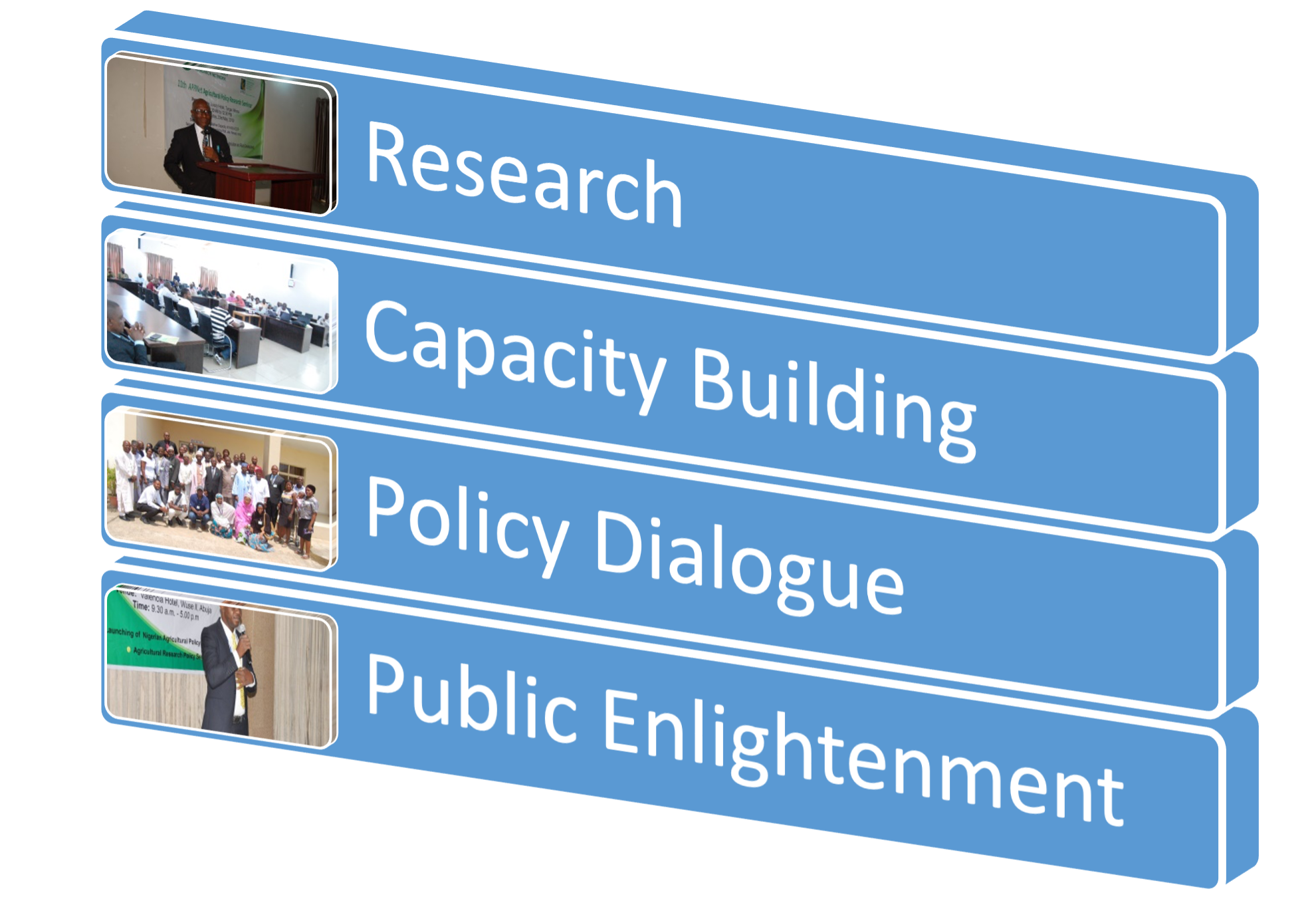What We Do

A. CAPACITY BUILDING
We conduct Capacity Building for:
1. Linkages of Agrifood System Research Policy and Practice
2. Delivery and capacity building of government organization related to agriculture, gender, fishery, forestry, trade and investment, natural resource and environment
3. Train youths, agribusiness firms, women, financial institutions and farmers
4. Collaborate with Universities and Tertiary Vocational Education Training institutions to train and provide jobs and livelihoods for youths, women, physically challenged and under- represented minorities inclusion
5. Research capacity building focusing on research design (action, survey, experimental, mixed methods, qualitative and quantitative) analysis using appropriate models and scaling up of innovations and research grant proposal writing skills development
6. Patenting and intellectual property management
7. Analysis of value chains in agrifood system
B. RESEARCH
The research thrust of APRNet aims at achieving the global vision of building a world with zero hunger where poverty is minimal and economic growth and environment are sustainably managed in an inclusive manner.
Our research are collaborative (often transdisciplinary) and focus more on the agrifood systems with a view of realizing an inclusive, sustainable, nutritious and healthy food systems capable of achieving the Sustainable Development Goals by 2030.
The APRNet 2030 Research and Innovation Strategy guides our work across twelve interlinked themes:
1. Food And Nutrition
2. Climate Change
3. Gender And Youth Inclusion
4. Sustainability And Agroecological Management
5. Environment And Natural Resources
6. Economy, Trade, Governance
7. Social Protection
8. Health
9. De-Risking Of The Agrifood System
10. Agricultural Finance
11. Agricultural Extension, Individual And Institutional Capacity Building
12. Governance
C. POLICY DIALOGUE
Our projects around policy dialogue focus on the following key thematic areas:
1. Research-policy interface and advocacy for sustainable agricultural and economic development
2. Engagement of stakeholders in agrifood system development
3. Gender, and youths inclusion in agribusiness activities
4. Policy Reviews and analysis in food and nutrition sector, blue and marine economy,
5. Environmental sustainability including climate change adaptation and resilience building policies, circular economy and biodiversity conservation
6. Capacity building of farmers and researchers
7. Farm innovations and technologies up-scaling and adoption
8. Agribusiness value chain analysis and strengthening
9. Agricultural trade, farm inputs and market access
10. Job and wealth creation
11. Water resource management
D. PUBLIC ENLIGHTENMENT
Public Enlightenment and Stakeholder engagement programmes on policies of government and the agrifood system in Policy Dialogues, Stakeholder Forums, Seminars and Conferences- Economic policies and agri-food system analysis
- Media engagements on policies and innovations to increase farmers productivity and resilience using media such as newspapers, Television and radio reports; podcasts and social media ( WhatsApp, LinkedIn, X etc)
- Inputs and technology access and adoption campaigns at farm and community levels
- Research Dissemination via journal (Nigerian Agricultural Policy Research Journal, NAPReJ), policy briefs, bulletins, blogs.
